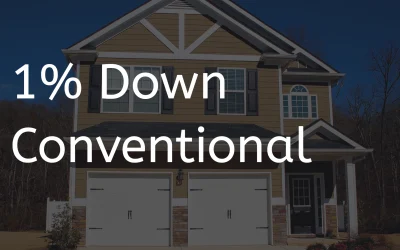Owning a home is a dream for many, but what if your credit history is less than stellar? The prospect of obtaining a mortgage with bad credit can seem daunting, but it’s not necessarily impossible. In this blog post, we’ll explore the nuances of securing a mortgage with less-than-perfect credit and provide insights on how to navigate this challenging terrain.
Understanding the Impact of Bad Credit: Before delving into the possibilities of obtaining a mortgage with bad credit, it’s crucial to understand the impact of your credit score on the loan approval process. Lenders use credit scores to assess an individual’s creditworthiness, and a lower score may result in higher interest rates, stricter terms, or even outright rejection.
Factors Influencing Mortgage Approval with Bad Credit:
1) Credit Score Thresholds: Different lenders have varying criteria for what they consider acceptable credit scores. While traditional lenders may have stricter standards, some specialized lenders or government-backed programs may be more lenient. Many lenders will go down to 580 credit scores, and some will go lower.
2) Down Payment: A larger down payment can mitigate the risks associated with rough credit. Offering a substantial upfront payment demonstrates your commitment and may make lenders more willing to work with you. If a qualifying credit score is <580, FHA will require a minimum of 10% down payment.
3) Employment and Income Stability: Lenders often assess your employment history and income stability. A steady job and consistent income can strengthen your mortgage application, even if your credit history is less than perfect.
4) Debt-to-income ratio: Lenders evaluate your debt-to-income ratio to gauge your ability to manage mortgage payments alongside other financial obligations. A lower ratio may compensate for a weaker credit score. A debt-to-income ratio is calculated by dividing the total monthly debt payments by the qualifying gross income for the borrowers.
5) Government-backed Programs: Investigate government-backed programs, such as FHA (Federal Housing Administration) loans, which are designed to assist individuals with lower credit scores. These programs often have more flexible requirements.
Navigating the Mortgage Process:
1) Check Your Credit Report: Start by obtaining a copy of your credit report. Identify any errors and take steps to correct them. Understanding your credit history allows you to address potential concerns proactively.
2) Seek Professional Advice: With a mortgage broker, you have a valuable resource at your disposal. Consult with industry experts who can provide tailored guidance based on your specific situation. They can help identify lenders who may be more accommodating to borrowers with less than perfect credit.
3) Build a Strong Application: Strengthen your mortgage application by emphasizing factors that showcase your financial stability. This includes a detailed employment history, evidence of consistent income, and a compelling letter of explanation for any past credit issues. Depending on the loan program, there is a list of compensating factors that may assist in qualifying.
4) Consider a Co-Signer: A co-signer with a stronger credit history can enhance your application’s appeal to lenders. Keep in mind that this person will share responsibility for the mortgage.
5) Explore FHA Loans and Other Options: Investigate government-backed programs like FHA loans, which often have lower credit score requirements. Research alternative lenders that specialize in working with borrowers with less-than-perfect credit.
Conclusion: While obtaining a mortgage with past credit challenges may present difficulties, it’s essential to approach the process strategically. By understanding the factors influencing mortgage approval, taking proactive steps to strengthen your application, and exploring various options, you can increase your chances of turning the dream of homeownership into a reality. As a mortgage broker, our expertise and guidance can make a significant difference in helping clients navigate this journey successfully.
Breaking Barriers: A Revolutionary Loan Option for First-Time Homebuyers
Unlocking Homeownership: The 1% Down Mortgage Revolution In today's challenging real estate market, many aspiring homeowners find themselves trapped between the dream of owning a home and the financial hurdles of traditional down payments. However, a groundbreaking...
Boost Your Credit Score: Essential Steps to Take Before Homeownership
Embarking on the journey to homeownership is an exciting milestone, but before you can unlock the door to your dream home, you need to ensure your financial foundation is solid. One of the most crucial elements in this process is your credit score. Your credit score...
Trigger Leads 101: What They Are and How to Make Them Stop
A trigger lead is a type of marketing lead sold by credit bureaus to lenders and mortgage companies. When someone applies for a mortgage and their credit report is pulled, it can act as a "trigger" for the credit bureaus to sell that consumer’s information as a lead...




